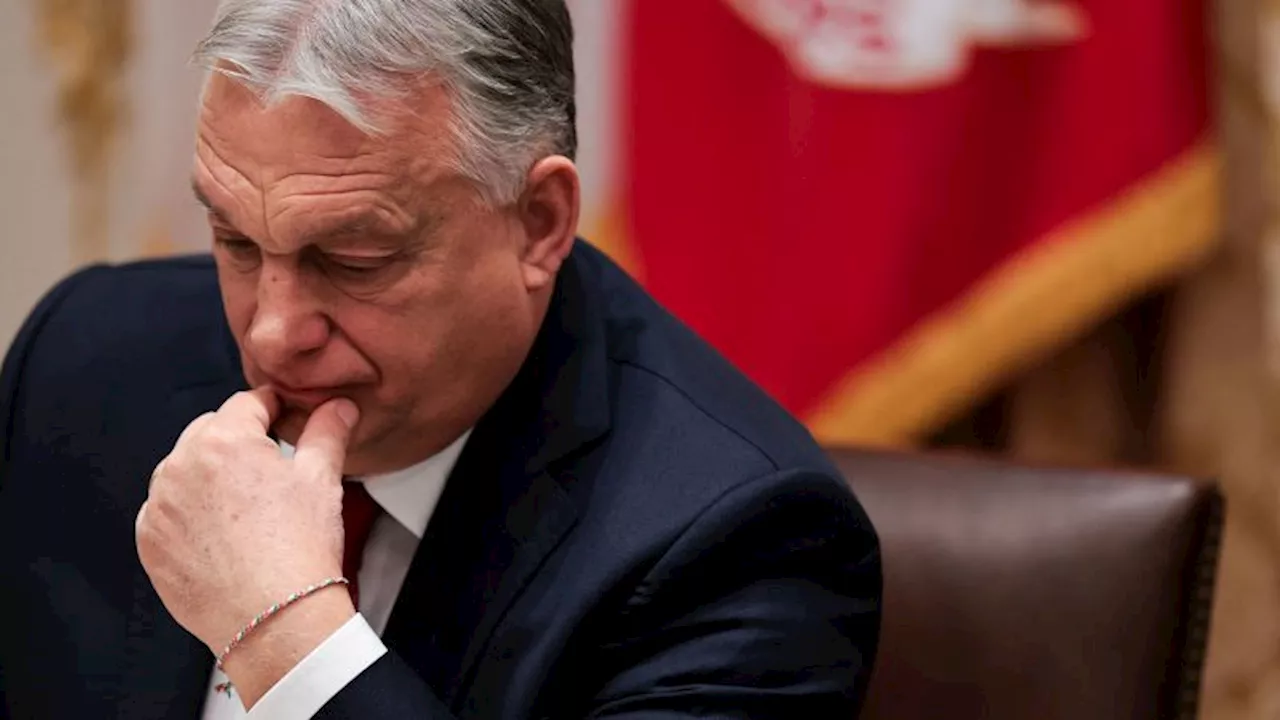URGENT UPDATE: President Donald Trump is currently considering a request from Hungarian Prime Minister Viktor Orban for an exemption from US sanctions on Russian oil, a move that could significantly impact the ongoing geopolitical landscape. This meeting, held at the White House on July 15, 2023, marks a critical point in US-EU relations amid rising tensions over Russia’s war in Ukraine.
For months, Trump has criticized European Union countries for purchasing oil and gas from Russia, arguing it fuels the Kremlin’s military efforts. However, during his meeting with Orban, Trump expressed sympathy for Hungary’s reliance on Russian energy, stating, “They don’t have sea, they don’t have ports, and so they have a difficult problem.” This comment underscores the challenges Hungary faces as it remains heavily dependent on Russian oil, with imports surging from 61% pre-invasion levels to an alarming 86% in 2024.
This meeting is pivotal as it represents the first significant test of the Trump administration’s commitment to enforcing sanctions on Russian oil exports. Analysts warn that granting Hungary leniency could embolden other nations to bypass US sanctions, undermining their intended economic impact on Russia and potentially prolonging the conflict in Ukraine.
Orban’s visit comes at a time when Hungary and Slovakia are the only EU countries still receiving oil from Russia through the Druzhba pipeline. Despite EU efforts to phase out Russian oil, these countries have deepened their reliance, with Hungary’s Russian crude oil imports accounting for 92% this year. In contrast, Russia’s share of EU gas imports has plummeted from 40% before the invasion to just 11% in 2024.
During the press conference, Trump also hinted at the possibility of reopening discussions for a summit with Russian President Vladimir Putin, a meeting that was previously shelved. Orban, who has aligned closely with Trump and the MAGA movement, is hoping to leverage this relationship to secure a carve-out from sanctions that could alleviate Hungary’s economic pressures.
As the situation develops, international observers are cautioned to monitor the implications of this meeting closely. The Atlantic Council cautioned that Trump’s approach could hinder the US’s ability to enforce sanctions effectively, potentially complicating the West’s strategy against Russian aggression.
In summary, Trump’s potential concession to Hungary reflects a complicated geopolitical landscape where energy dependencies can influence international relations and policy-making. As this story unfolds, the global community will be watching closely for the outcomes of Trump and Orban’s discussions, particularly regarding sanctions, energy imports, and the future of US-EU relations.
Stay tuned for further updates on this developing story.







